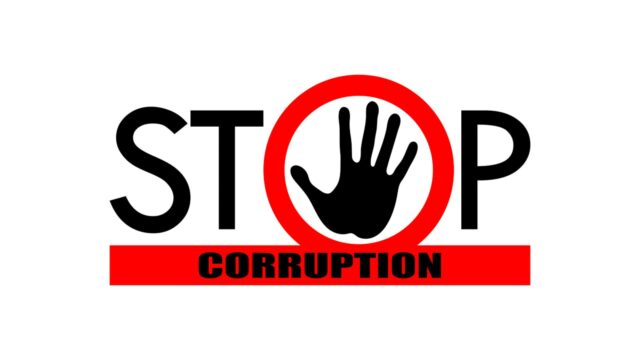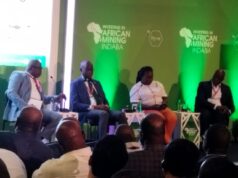- Collusion and favouritism
- Payment of a bribe to obtain a favourable opinion
- Granting of mining rights to politically exposed mining companies
The Civil Society College of the Extractive Industries Transparency Initiative (EITI) Steering Committee has decided to undertake a diagnostic of the risks of corruption in the extractive sector in Guinea. The “diagnostic report on corruption in the mining sector in Guinea”, which has now been published, describes the forms of corruption that exist in the Guinean mining sector and how these are hampering the development of the sector in the country.
In Guinea, there are many different forms of corruption in the mining sector. According to the report by the EITI Civil Society College, the forms of corruption can be summed up in two 02 groups. There is corruption relating to mining operations and corruption relating to the collection of mining revenues (taxes).
Forms of corruption in mining
As far as mining is concerned, the primary form of corruption is collusion and favouritism in the granting of mining titles. “This form of corruption occurs when certain executives involved in the process abuse their power to help companies obtain recently withdrawn mining titles in exchange for bribes”, the report states. This practice has recently become more widespread in Guinea, following measures taken by the government to clean up the mining cadastre by withdrawing obsolete titles and mining titles whose owners have failed to meet their obligations.
Then there is “payment to speed up the process of granting mining titles”. This is when applicants for mining titles pay bribes to government officials in order to speed up the process. “The procedure is often slow, creating a degree of frustration or impatience among applicants for mining titles. This frustration is exploited by some government officials to demand payments. In other cases, companies are impatient to obtain the mining title and offer to pay, either directly or through agents, to speed up the process. In this way, companies that pay bribes receive preferential treatment and obtain mining licences more quickly than those that do not pay bribes”, explains the report.
In addition, one of the forms of corruption facing the Guinean mining sector is the “payment of bribes to obtain a favourable opinion from the examination committees”. This form of corruption involves the payment of bribes by applicants for mining titles to members of the technical committee for mining titles or the national mining commission in order to obtain a favourable opinion during the examination of applications. “In some cases, bribes are solicited or even demanded by members of these committees in order to validate an application. The aim of this practice is to unduly influence the decisions of the review committees by circumventing the technical, environmental and economic criteria established for the award of mining titles”, states the report by the College of Civil Society Representatives.
Finally, with regard to mining, the last form of corruption is “the granting of mining titles to politically connected mining companies with no experience in the sector”. According to the report, companies with connections to political actors obtain mining titles even though they often have no previous experience in the mining sector. These companies are often supported by national and foreign politicians and senior executives who use their influence to compromise the process of granting mining titles. Political figures may also have direct or indirect interests in these companies. This is the case of “the Palladino Capital affair”, in which a company loaned more than 15 billion FCFA to Guinea in exchange for a stake in the company managing Guinea’s mining assets through a complex contract with options”, the report cites. There is also the case of Mamadie Touré, wife of former president Lansana Condé, whose name has appeared in numerous investigations into the activities of Pentler Holdings, who is alleged to have transferred, through a network of shell companies, at least one payment of more than 1 billion FCFA to her offshore company, in exchange for her help in obtaining a concession in the Simandou mine from her husband shortly before his death. Finally, in 2017, former Guinean mining minister Mahmoud Thiam was convicted on corruption charges of using his influence within the Guinean government to grant mining rights to Chinese operators. He is alleged to have received nearly 4 billion FCFA in his account.
Georges Youl
#Mines_Actu_Burkina










